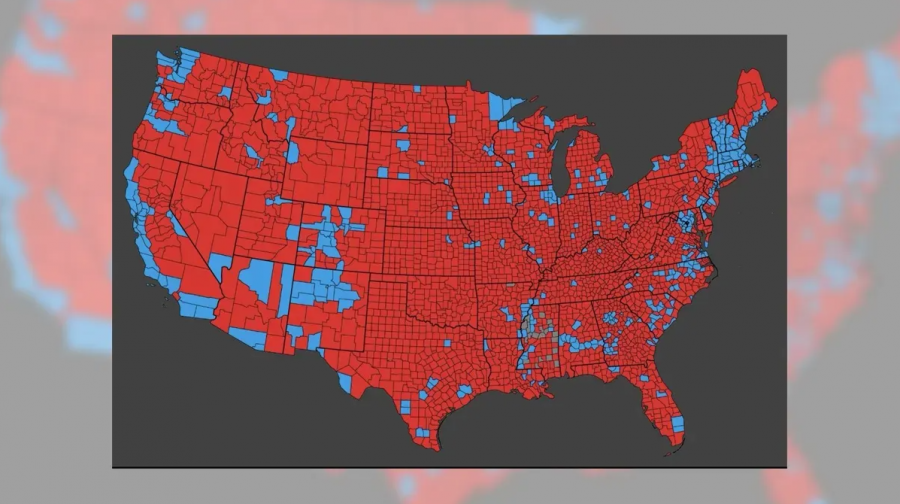Our Founding Fathers were certainly not perfect. But the 'American experiment' of a constitutional republic still looks pretty good in my book. The Electoral College, like many of the foundations of our government, was a compromise. The framers of our Constitution debated for many months. Many founders wanted the President to be elected/selected by the U.S. Congress, a much smaller body of elites at that time. Others advocated for a popular vote to pick the 'non-King' to lead our colonies and now nascent nation forward.
Roger Sherman and Oliver Ellsworth, were the primary authors of this great compromise. With the War for Independence in the rearview, and Britain's return and attempt to reconquer in 1812 yet ahead, the founders wanted out from the over-bearing yoke of a monarch, and also the overstepping rule of Britain's appointed Colonial Governors. Yet no other nation on the planet elected their ruler by popular majority vote.
The compromise, with an acknowledged nod to America's original sin, designed a system where states would fashion their own laws for selecting Electors, each state would have two Electors to mirror their representation within the U.S. Senate (two members for each state), and additional electors for each Congressional District within the U.S. House of Representatives. It would be much later that most states would award the popular vote in 'winner take all' fashion to the Electoral Slate of the party winning a plurality of each state's votes. Maine and Nebraska are the exceptions, awarding their Electoral Votes by Congressional District matching the results of each.
Though founded upon democratic principles, our nation is a constitutional republic. We select and elect officials, in the three branches of government, to determine policy, set budgets and enact the people's business. From those original 13 colonies and a population of nearly 4-million, we are now 50 states with a population of 330-million. And we ALL now actually vote for a slate of electors, versus candidates for President.
The Electoral College gives voice and votes to all states. The large and the small. California, with nearly 20-percent of the U.S. population, has 54 electors, out of a total of 538. just under 10 percent of all electors. There are 100 electors to represent the U.S. Senate, 435 the U.S. House and 3 for the District of Columbia. Washington, D.C., with 3 Electoral Votes, was created for hosting our nation's Capital, from land donated by three states and a good bit of salvaged swamp land and intracoastal waterway along the Potomac River.
Each time there is a disconnect between the results of the popular vote and the Electoral College, a hue and cry arises to amend the Constitution and move to the popular vote deciding the occupant of the White House. This argument most typically comes from the non-prevailing side, when the Electoral College chooses the other candidate. However, non-alignment is far from rare. The last Republican to win both was President George W. Bush during his second term in 2004.
Many states in New England (including several original colonies), across the Rocky Mountains and Alaska, have only those 3 Electoral College votes, based on their modest populations. Shifting to a popular vote system would remove any need for candidates to appeal to a broad cross section of the American people, or to campaign in between major population centers. The east coast, and major cities and metro areas like Atlanta, Chicago, Dallas, Philadelphia or Las Vegas would see candidates and become centers of campaign activity, but 'flyover country' would likely become almost exclusively that.
The Trump campaign created a map, painting the nation by the voting results in all counties, Red for Trump won, and Blue by Harris. Without including Hawaii and Alaska, the map shows an ink blots smattering of blue surrounding most every major MSA in the nation, predominantly along the eastern seaboard. The heartland, sun belt and deep south are a nearly uninterrupted Red Sea.
While the popular vote margin is closing, Trump still leads Harris by more than 3.5 million votes, and the GOP flipped 10 counties from Blue to Red in California, which may decide the majority party in the U.S. House.
When your position on an issue looks starkly different, dependent on who is large and in charge, you need to face the reality that your own thinking and preferences are being clouded by politics and perhaps your party preference, and possibly not necessarily 'the good of the nation.' The Electoral College still has my vote.

http://accesswdun.com/article/2024/11/1271654/a-vote-for-the-electoral-college
